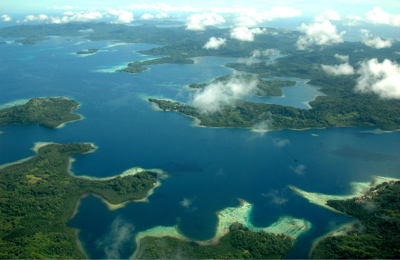Even though the elections in the Solomon Islands of 2010 were relatively violence free, the scars of the riots of 2006 are still fresh. Now with new elections expected to take place in October or November of this year, there are strong reasons to fear violence will disrupt the electoral process once again.
Firstly, there are indications that electoral fraud will be even higher this year than in 2006. Vote-buying is rampant. In a country where many live below the poverty line, in particular in the rural areas, it has become highly attractive to sell your vote to the highest bidder. This has led to voters receiving up to 5,000-6,000 Solomon Dollars for their vote, roughly equivalent to 700-800 US Dollars.
This is possible in part because of funding that current Members of Parliament (MPs) receive, in particular from foreign donors, to use at their own discretion to help the people of their constituencies. The thinking is that such direct investment will make for projects that circumvent the mazes of the Government system and truly address the needs of the people.
However, it has already proven difficult to monitor how the money is being spent. And aside from investing in or setting up companies and businesses, it seems many MPs use it to buy their re-election. Obviously this makes it hard, if not impossible, for other opposition or independent candidates to compete. A side effect of this is that the chances of getting more women in Parliament are very slim.
This is further aggravated by cross-border or double registration. The division of the country into 50 constituencies has made it possible for people to register in both their own and neighbouring areas, allowing them to collect money more than once.
Secondly, the voter registration process has been seriously flawed. During March and April of this year, mobile voter registration centres moved across the country to allow for people to register for the elections, not staying in one place any longer than one week. This limited period and the need to personally go to the voter registration centres has meant that many were not able to register. In some cases this was because they did not have time, in others because they were physically not able to go to the voter registration centres, because of sickness, disability or pregnancy.
Furthermore, major flooding, a tsunami warning and an earthquake hit the country over the course of just one week, during the registration period in April. Within the same month, this was followed by landslides caused by bad weather. Many were forced to flee from their homes to other parts of the country, making it impossible for them to register for the elections since this needed to be done in the constituencies where they live. Riots have already broken out because people felt the disaster response was late, slow and unfair. Feelings of unjust treatment in the voter registration process will further increase frustrations, anger and tension.
Finally, even though the Solomon Islands has experienced relative peace over the last decade, it has not been able to properly address the armed conflict that terrorized the country between 1997 and 2003. The Truth and Reconciliation Commission (TRC), which was established in 2009, finalized its report several years ago, but it has still not been discussed in Parliament. As a result, the recommendations of the TRC have not been implemented, leaving many of the root causes of the conflict unchanged. Until the country goes through a profound reconciliation process, recommendations for which are in the TRC report, every single elections cycle will be influenced by the rifts that are still prevalent in society.
There are yet more reasons to be seriously concerned about the possibility for violence breaking out before, during or after the elections planned for October or November. With just a few months left, urgent action is needed to prevent that from happening.
To begin with, foreign donors need to change the policy of giving MPs funding to be used at their own discretion. Not only has this contributed to the practice of vote-buying, it has also put them under extreme work pressure needing to function almost as project managers in addition to their already demanding jobs as MPs. Policy changes before the elections in a few months are unlikely, but donors can still demand stricter monitoring of what their funds are being used for.
Secondly, another round of voter registration should be organized to give people a second chance to register. This would of course cost a lot of money, but, as the experience of 2006 has shown, potential costs of new election violence greatly outweigh that.
Finally, both media and civil society organizations intent on reducing anger and frustration that might lead to violence need urgent support to do their jobs. Some media and civil society groups are rather contributing to the problems though, so donors must be keenly aware of intentions and past efforts. Media in particular require training on how to properly cover the entire election cycle and how to do so in a conflict sensitive manner.
The Solomon Islands has seen a lot of violence over the last decades. New election violence would add to the wounds that are already there and will make it that much harder to reconcile its people. This makes it all the more important to act swiftly and do everything needed to prevent violence before, during or after the upcoming elections. There is still time to act, although not much.
Stanley Holmes Vutiande, Winds of Change Solomon Islands and GPPAC Focal Point for Solomon Islands and Marte Hellema, Global Partnership for the Prevention of Armed Conflict (GPPAC)






